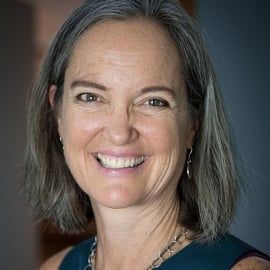Getting Your Clients World
What is the biggest challenge for leaders today? The term ‘complexity’ has become a buzzword, but how does that translate into being a personal challenge for leaders and how can we help them navigate that challenge?
In this conversation with executive coach Carolyn Coughlin we dive into the feedback mechanisms unveiled by adult development theory, the core challenge for leaders facing complexity and the role of language in creating breakthrough shifts.
Attuning to Feedback Mechanisms
Adult development theory can help us support leaders by enabling us to listen deeply – to listen both to what they’re saying but also what they mean by what they’re saying. This allows us to hear behind the layer of lenses of the client and without our own lenses.
It also helps us to recognize the importance of the other levels of meaning beyond purely the cognitive; we include the body and the emotions, the felt sense of something. This means that we have much more feedback from what is happening within a client in any particular situation.
Our identity and soma are continuously providing us with feedback about what our current context is asking of us. When this is something new and unfamiliar, or particularly when it’s not congruent with our identity, it can be experienced as challenging.
As coaches we can help our client to presence the somatic experience – to describe it in detail, to locate it in the body and to talk to it. This helps them to slow down long enough to be with it rather than just trying to move away from it.
Navigating Complexity
Not everything is complex, but complexity is everywhere. Complexity is something you can’t predict or control; we can try to recognize patterns within the complexity but we can’t predict how things will unfold.
Crucial abilities for navigating complexity include:
- Being able to step back and observe (to watch for patterns)
- Cultivating the capacity to be with discomfort
Observing can feel like doing nothing and many people feel a strong urge to take action. The danger is to react rather than respond, which is why taking the time to be an observer is so important, and for many leaders this triggers the identity (which is often related to being an action-taker).
The Role of Language
Words are the doorways into someone’s meaning-making. A simple shift in language can often create a huge shift around how we feel about something. Is the client using creative, generative language or language that may be keeping them stuck?
Simply by helping the client to shift their language to words that increase possibility effectively increases their capacity for change. Asking “What’s your definition of success” can often bring up people’s underlying beliefs around success and the beliefs that are currently driving their lives.
